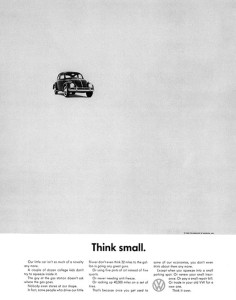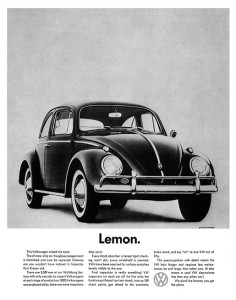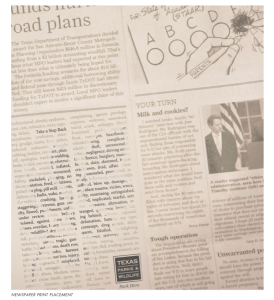
Let’s start with some clarifying statements:
Content is not copy.
Marketing is not advertising.
Content Strategists are not Copywriters.
But, sometimes copywriters can be content strategists. Most likely, they can write content as well as copy. And usually, they are educated in marketing and specialize in advertising.
Marketing “is the systematic planning, implementation, and control of a mix of business activities intended to bring together buyers and sellers for the mutually advantageous exchange or transfer of products.”
Advertising “is the paid, public, non-personal announcement of a persuasive message by an identified sponsor; the non-personal presentation or promotion by a firm of its products to its existing and potential customers.”
Advertising is only one component of the Marketing process.
It’s clear where the confusion lies between the two professions, and it’s only further confused with the mix-up of the words content and copy.
Copy versus Content
Much like how a square is a rectangle, but a rectangle is not a square, copy is content, but content is not copy.
When working in the Advertising and Marketing Industry (note: they are two separate sectors paired together), copy refers to the succinct, arguably clever words in advertisements. Copy consists of headlines, taglines, and never gets verbose even when it’s extended into its longer forms of TV advertisement scripts and what we Ad folk call “long copy”.
Headlines are the more conversational 3-7 words usually at the top of an advertisement and usually create a single execution for a campaign.
Taglines are the 3-5 words either describing a product or succinctly describing the campaign for the product and are usually calls to action.
One of my Ads for Texas Parks and Wildlife displays this distinction pretty clearly:
In this execution “Take a Step Back” is the headline while “Park Here” is the tagline.
In the 1960’s, DDB offered up one of the best specimen’s of long copy for Volkswagen’s Beetle in their two print pieces: “Think small” and “Lemon.”


Content on the other hand refers to information in advertising and marketing efforts. Content can be info graphics or images, but it most commonly refers to info within webpages and particularly words. Like copy, content should be informative, succinct, on-brand, targeted, and sometimes clever. It should also always be smart, search engine optimized (SEO), and conversational.
Content Strategist vs. Copywriter
On top of a number of responsibilities including determining site navigation, CTA’s (calls to action), and keywords for SEO, Content strategists craft the message platform for clients based on marketing data and employ copywriters to write the content in clients’ websites, social media, white papers, and other deliverables. However, in smaller firms, sometimes the Content Strategist authors the content, or be, as I like to call it: the Content Writer.
Devin Asaro of iAcquire put it nicely.
Why not Copywriter?
Content Strategists are primarily communication and marketing experts. They organize, and structure information for the user experience. There is some inherent, theoretical systems development mixed into their brains along with language and branding. They can clearly determine and explain how content should be written, and sometimes they are great at writing it themselves, but other times not so much. And again, content is not copy, and Copywriters do much more than just words and content.
Copywriters are conceptual brand, language, communication, advertising, and media experts. They look at a brand and boil it down to what makes them unique (their unique selling proposition or USP). They determine a company’s business problem like a content strategist and rectify it in a very concise, clever manner by coming up with a creative campaign that’s executed on all media. They live outside structure until they come up with an idea that fits into any box while maintaining clarity.
Both Content Strategists and Copywriters are multidimensional-puzzle solvers, but while Content Strategists are used to having an entire website to explain, Copywriters can clearly answer in two words.
Content Strategists may be great writers, but they would most likely have a hard time molding into Copywriting and the Advertising medium.
Content Strategists inform while copywriters also create. Copywriters don’t just engage and explain like Content Strategists, they intrigue and ultimately make people think in the flash of a second. They give people that “Ah-hah!” moment, and sometimes a guffaw, other times sadness, fear, consideration, amusement, or the warm taste of a new idea follows that “Ah-hah!”
Copywriters can be “Content Writers,” but can they be Content Strategists?
Depends on the writer. Obviously, they have the writing, branding, and creative chops and inherently understand marketing and advertising, but they need the mind for structuring systems. They need the cognitive ability to take in mountains of a variety of information, organize it, and explain it to different target demographics.
Copywriter, Content Strategists are a rare breed: able to offer a lot and save you the expense of a copywriter and the time it takes to delegate and direct.
So, if you have your hands on a Copywriter turned Content Strategist, loosen your grip and thank your strangely organized wordsmith.
-FINAL(01-00)-White&Blue-01.svg)





